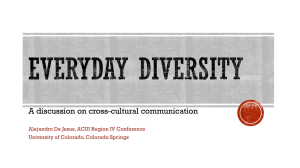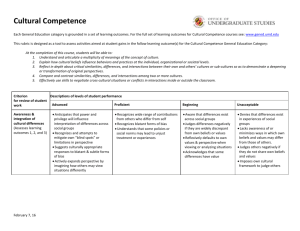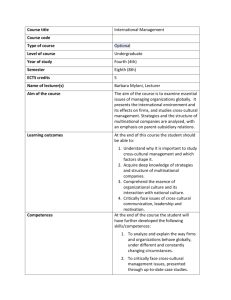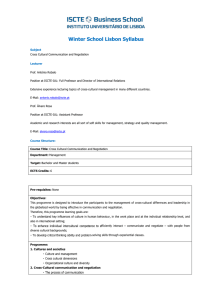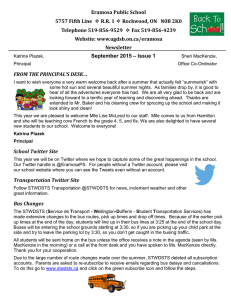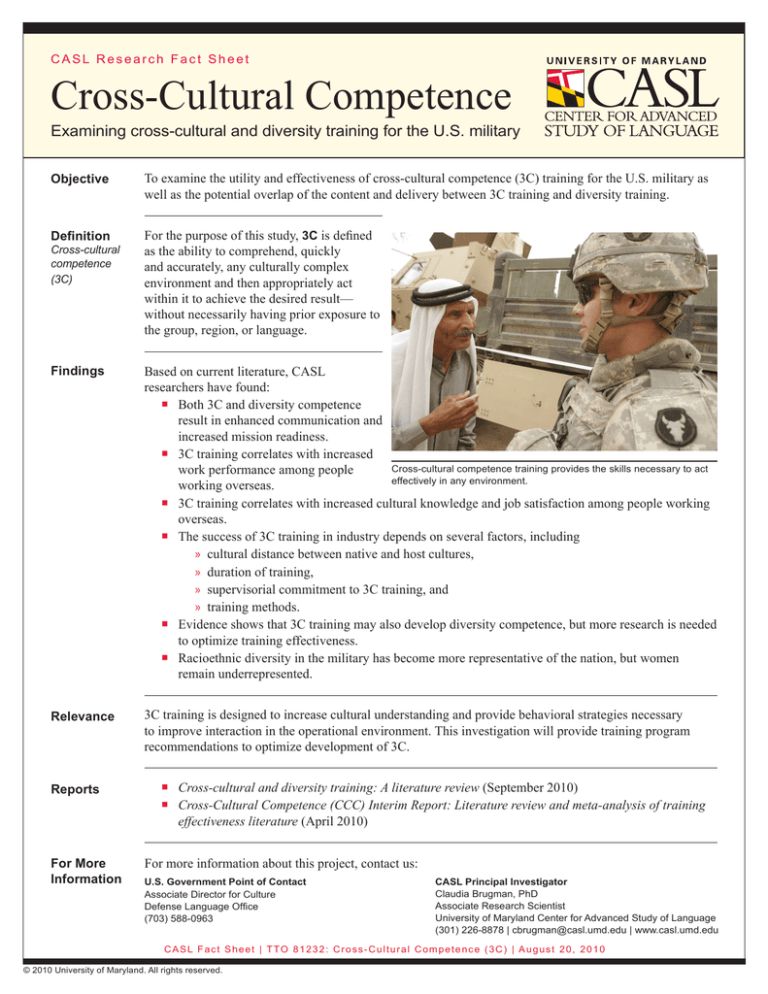
CASL Research Fact Sheet
Cross-Cultural Competence
Examining cross-cultural and diversity training for the U.S. military
Objective
To examine the utility and effectiveness of cross-cultural competence (3C) training for the U.S. military as
well as the potential overlap of the content and delivery between 3C training and diversity training.
Definition
For the purpose of this study, 3C is defined
as the ability to comprehend, quickly
and accurately, any culturally complex
environment and then appropriately act
within it to achieve the desired result—
without necessarily having prior exposure to
the group, region, or language.
Findings
Based on current literature, CASL
researchers have found:
Both 3C and diversity competence
result in enhanced communication and
increased mission readiness.
3C training correlates with increased
Cross-cultural competence training provides the skills necessary to act
work performance among people
effectively in any environment.
working overseas.
3C training correlates with increased cultural knowledge and job satisfaction among people working
overseas.
The success of 3C training in industry depends on several factors, including
»» cultural distance between native and host cultures,
»» duration of training,
»» supervisorial commitment to 3C training, and
»» training methods.
Evidence shows that 3C training may also develop diversity competence, but more research is needed
to optimize training effectiveness.
Racioethnic diversity in the military has become more representative of the nation, but women
remain underrepresented.
Relevance
3C training is designed to increase cultural understanding and provide behavioral strategies necessary
to improve interaction in the operational environment. This investigation will provide training program
recommendations to optimize development of 3C.
Cross-cultural
competence
(3C)
Reports
For More
Information
Cross-cultural and diversity training: A literature review (September 2010)
Cross-Cultural Competence (CCC) Interim Report: Literature review and meta-analysis of training
effectiveness literature (April 2010)
For more information about this project, contact us:
U.S. Government Point of Contact
Associate Director for Culture
Defense Language Office
(703) 588-0963
CASL Principal Investigator
Claudia Brugman, PhD
Associate Research Scientist
University of Maryland Center for Advanced Study of Language
(301) 226-8878 | cbrugman@casl.umd.edu | www.casl.umd.edu
C A S L F a c t S h e e t | T TO 8 1 2 3 2 : C r o s s - C u l t u r a l C o m p e t e n c e ( 3 C ) | A u g u s t 2 0 , 2 0 1 0
© 2010 University of Maryland. All rights reserved.

